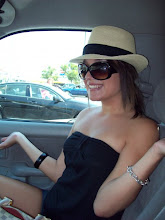Although Mr. Chow may be one of the most comical characters in 2009's “The Hangover”, he is the epitome of the Oriental stereotype, according to Said's definition. In his book Orientalism, he describes the “Oriental” as “feminine, weak yet strangely dangerous because [he] poses a threat to white Western women[....]The Oriental is a single image, a sweeping generalization, a stereotype that crosses countless cultural and national boundaries”(Sered 1). From his stereotypical name to his flamboyant clothing and tiny shoes, he embodies this idea of the Oriental.
Mr. Chow's character in “The Hangover” believes that his purse that held thousands of dollars was taken by Alan and the rest of the guys Phil, Doug, and Stu. His character in this plot of “bachelor debauchery” immediately possesses all of the Oriental characteristics Said defines. He is short in stature, wearing a white suit and desperate to get his purse back. His appearance is all too feminine yet he also inhibits this “strangely dangerous” persona. He has means of force-a group of Asian gangsters harassing the guys, and holds Doug, the soon-to-be groom, for ransom.
Although Mr. Chow is used purposely to attribute to the comedy of the film, many can argue that his “femininity” only emphasizes the masculinity of the American men visiting Las Vegas. Said claims that this supposed weakness was to be overcome by Western influence. He states, “The feminine and weak Orient awaits the dominance of the West; it is a defenseless and unintelligent whole that exists for, and in terms of, its Western counterpart” (Sered 1). Ironically enough, the “Western influence” seen in the film as Doug, Phil, Stu, and Alan, eventually defeat Mr. Chow by winning back all of the money he had lost. They give Mr. Chow his $80,000 in return for their friend Doug. (Unfortunately, the Doug they believed they were fighting for was actually not the friend). Regardless, symbolically the West was able to defeat the East, dismissing Mr. Chow's character throughout the rest of the film.
Granted, this analysis may be pretty far-fetched. The main purpose of this film is not to portray ideas of the Orient. However, Said's theory is present in a nation-wide acceptance of this ridiculous character. Mr. Chow plays the ultimate Asian stereotype, spouting off quirky one-liners that thousands of movie-goers can quote off-hand. Americans are simply immune to this persona in films. The producers of this film capitalized upon their viewers' Orientalist perspectives.
Either way, this film is a relatively light-hearted comedy with the main goal of making its viewers laugh. “The Hangover” would not be the same if Mr. Chow was not in it. His presence definitely contributed to the hilarity of the movie.
Works Cited
Sered, Danielle. "Orientalism." Emory University---English Department "Where Courageous Inquiry Leads" Fall 1996. Web. 06 May 2010.
